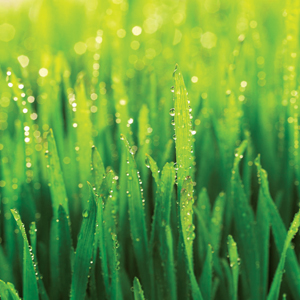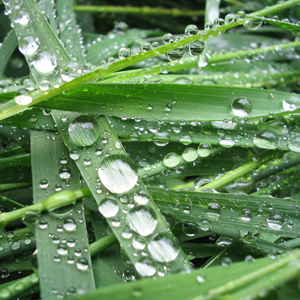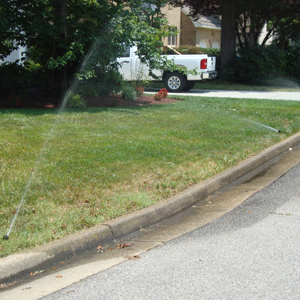To have a healthy, vibrant lawn, homeowners must perform proper cultural practices such as proper mowing, aeration, overseeding, fertilizing, and watering. Here are some tips and tricks of the trade to help you water your lawn in the most efficient and effective way possible.
Water Your Lawn Thoroughly, But Not Too Often
This is the most important point to take away from this article: water your lawn deeply and infrequently. When a lawn is watered deeply it forces the turfgrass roots to reach deeper into the soil for water, making the root system grow bigger. With a larger root system, the turfgrass will be able to absorb more nutrients and better withstand stress from heat and drought.
It is important to avoid frequent watering because it creates a favorable environment for turf diseases. A good rule of thumb is to ensure your lawn receives an inch of water every week (which is usually about an hour of watering).
Morning Is the Ideal Time for Natural Watering
When possible, water in the morning. If you water during the day some water will be wasted due to evaporation. Watering during the day may also “burn” blades of grass due to a “magnifying glass effect” that happens when the water droplets resting on the grass magnify the sun. Watering after sunset can expose turfgrass to a prolonged period of wetness which can lead to disease.
When in Doubt, Water Your Lawn
When in doubt? If your grass needs to be watered, water it. Think of it this way, if someone were dying of thirst you wouldn’t wait until the next day, or the “proper hour”, to give them water. Good common sense should be practiced. If you’re unsure whether or not your lawn needs water, check out our video: how to tell if my lawn needs watering.
Cultural Practices to Complement Your Lawn Watering
In addition to watering, practice good lawn care techniques. Annual aeration and seeding helps to ease compacted soil, which causes runoff. Regularly mow your lawn at the proper height and keep mower blades sharp. If you do these things, you will be on your way to growing a strong and healthy lawn.
Here’s more lawn care advice:
- How To Grow Grass - Tips for a Newly Seeded Lawn
- 11 Plants That Repel Mosquitoes (Video)
- When Is The Best Time To Weed Your Lawn?
If you have further questions about proper watering techniques or any aspect of lawn care, please contact us today.
Work with Nature to Reduce Your Watering
When watering, try your best to conserve water. Keep an eye on the weather and let nature do the watering for your lawn. Also, check to be sure the sprinklers aren’t watering your driveway!










